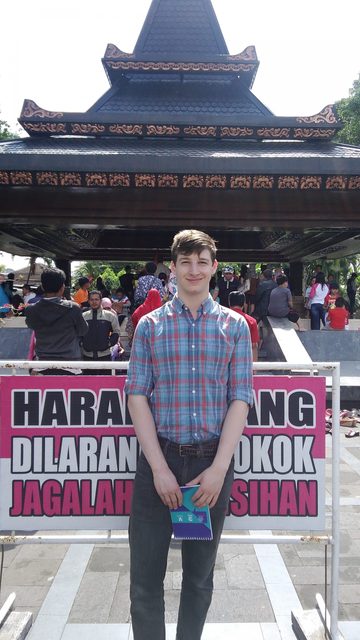Carleton announces eight Fulbright grant winners
Meet the Carls who will spend a year abroad on prestigious Fulbright grants.
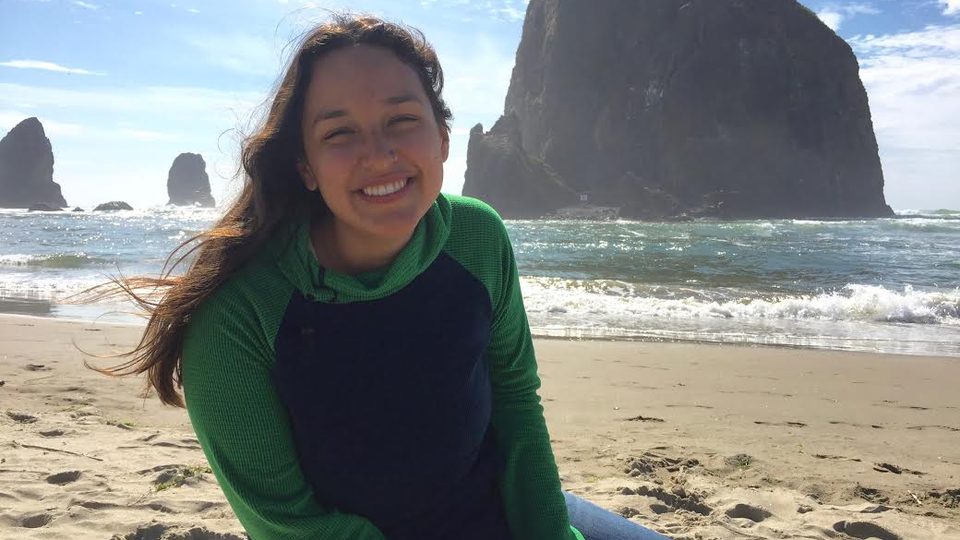
Eight Carleton seniors and recent alumni were recently awarded prestigious Fulbright U.S. Student Program grants.
The Fulbright exchange program allows upcoming graduates and recent alumni to participate in advanced research, international graduate study, and teaching at primary and secondary school in more than 140 countries worldwide. Around 1,900 U.S. Student grants are awarded annually in all fields of study.
While in their host countries, Carleton’s eight winners will spend a year living and learning “on a one-to-one basis in an atmosphere of openness, academic integrity, and intellectual freedom, thereby promoting mutual understanding.” Among the Fulbright factors in selecting grantees: Quality and feasibility of their proposal, academic record, personal qualifications, language preparation, and an eagerness to promote active engagement with a host community.
The Fulbright projects are profiled below:
Dan Brodkin ’18
- Darien, CT
- Linguistics (+History, MARS)
- Fulbright Location: Malang, East Java, Indonesia
Traveling back to Java, I’ll spend the next year exploring how language attitudes and ideologies develop and compete in urban settings today in Indonesia. The Indonesian archipelago is one of the most linguistically diverse places on the planet, with over 600 native languages spoken across the region, but as the country rapidly modernizes, many minority languages have begun to fade as communities shift towards the national standard. As a linguist, I’m interested in both how linguistic communities negotiate these shifts in linguistic behavior and how to support successful language preservation initiatives at the community level, so over the next year, I will investigate and document how local language ideologies play out in an East Javanese city with support from the department of Javanese at the Universitas Negeri Malang.
I’m very excited to head back to Malang- for the food, the people, the climate, the chance to continue my research, and most of all, the experience of life in Indonesia. Traveling there last summer was a seriously educative and deeply humbling experience, and I’m really looking forwards to spending more time in Malang for more of the same. And that’s to say nothing of the linguistic side of it: I spend all my time here thinking about Indonesian syntax anyways, so I’ve already gotten to planning up a dozen new research projects for once I arrive.
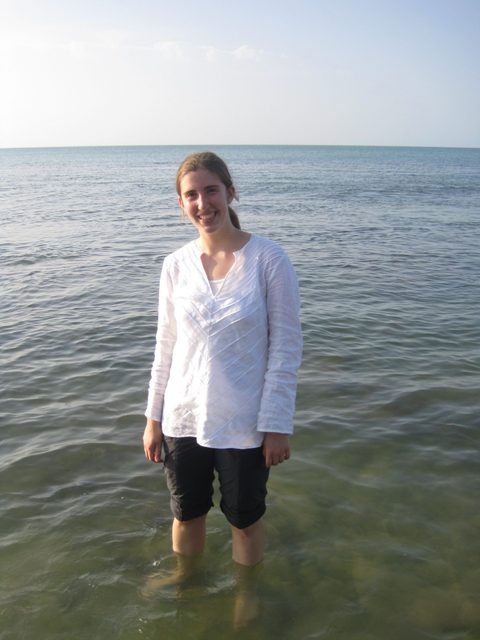
Hannah Gellman ’18
- Greencastle, IN
- English
- Fulbright Location: Sri Lanka
On my Fulbright, I will be teaching English and using my experience teaching and directing theater as a classroom tool. I also hope to reconnect with theater companies that I encountered while I was studying abroad on the ISLE program. Several of these theater organizations do really fantastic work with multiethnic populations, and I would love to bring them to my host community.
When I return to Sri Lanka, I can’t wait to catch up with my professors and host families, visit new parts of the island (like the tea country and the mountains), and eat Sri Lankan food again. Having ten months to connect with such a rich culture will be an amazing opportunity. Not to mention, there won’t be any April blizzards in Sri Lanka!
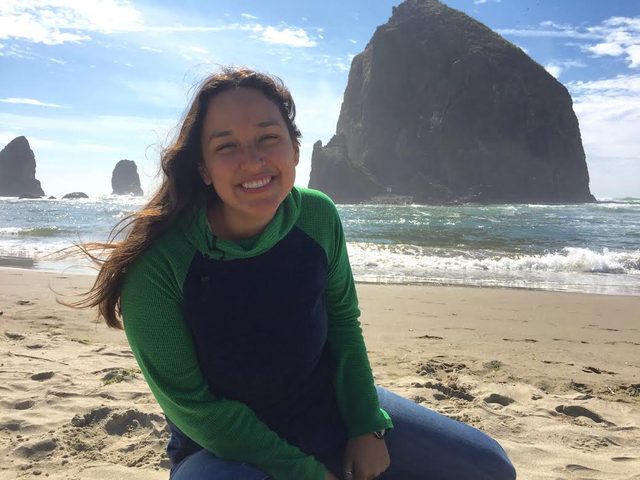
Carinna Nikkel ’18
- Holland, Michigan
- Spanish
- Fulbright Location: Asturias, Spain
My Fulbright is an English Teaching Assistant Award, so I will be helping out in English language classes in elementary schools and secondary schools in the Northern province of Asturias. I’ll move back and forth between a couple of schools, both rural and urban, so I’ll get to interact with a range of students. After being a Spanish TA at Carleton teaching Spanish to English speakers, I’m excited to do use my teaching experience in a totally new context.
I love radio. And for my community engagement project, I plan to organize story workshop events where I can record oral histories from people of all ages. I am so excited to hear people’s stories, especially older people in the community. And editing the stories into a podcast will create something tangible that I can give back to the people who share their stories. Near the end of my time, I’ll host a final celebratory event where people can listen to the podcast as a group—an event that I’m already eager to plan.
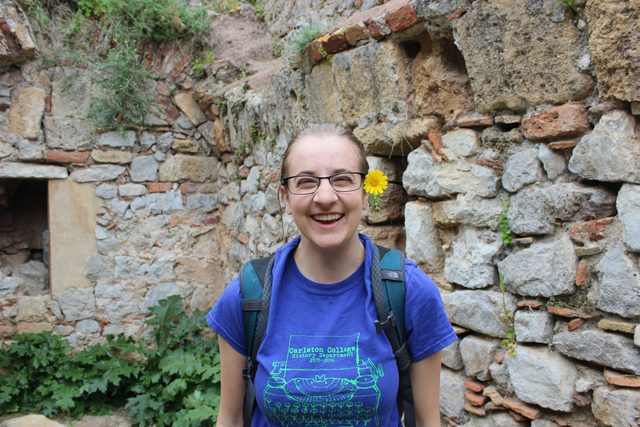
Lizzy Ehren ’18
- Woodbury, MN
- History
- Fulbright Location: Hustopece, Czech Republic
I will be teaching English to high school students in the South Moravian region of the Czech Republic. For my courses, I will create a curriculum for the school year, and- as an American music minor at Carleton – I hope to incorporate a lot of English language music into the lessons. Outside the classroom, I am hoping to help with the school’s folk dance troupe and start a blog which includes my photography of local historical sites and some accompanying information about each place.
I am looking forward to learning more about the history of the Czech Republic and the surrounding countries. During my coursework at Carleton, I focused on other areas of the world, so I know relatively little about the history of this region of Europe. I am particularly curious about the Czech Republic’s recent history and its nation building strategies, as the nation – in many ways – is both very new and very old at the same time. Also, South Moravia is known for its food and wine, so I can’t wait to try some new foods. I am so thankful and excited for this opportunity to learn a lot about myself and the Czech Republic.
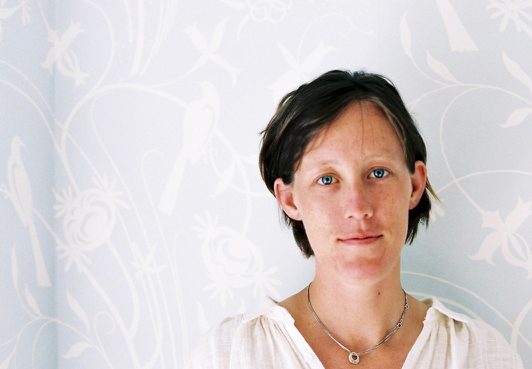
Sally Donovan ’16
- Minneapolis, MN
- Geology
- Fulbright Location: Cottbus, Germany
For my Fulbright fellowship, I will study long-term changes in soil chemistry and morphology at sites of historic charcoal production, called relic charcoal hearths (RCHs), in Brandenburg, Germany. For centuries, colliers have clear-cut forests around the world to produce charcoal fuel for smelting iron. Charcoal production, which involves slowly burning wood, has introduced lasting anthropogenic disturbances (e.g., soil fertility decline and decreased plant growth) to forest ecosystems worldwide. However, the extent of these disturbances is not well understood, particularly the effects of historic charcoal production on surrounding soils. Building on my senior comps, which examined RCH soil geochemistry in Connecticut, I will study soil hydraulic properties at RCHs in Connecticut and Brandenburg, joining researchers from the U.S. and Germany. I hope my research will contribute to a more connected, global understanding of RCH-affected forests and, more broadly, reveal a story about the lasting impacts of human landscape modification.
I look forward to working with Europe’s growing network of RCH researchers. Scientists across Europe recently started a cooperative, international network for long-term RCH research. This fall, they are planning to host the first international RCH conference in Cottbus. I’m excited to attend the conference, share my project, and take part in international RCH conversation.
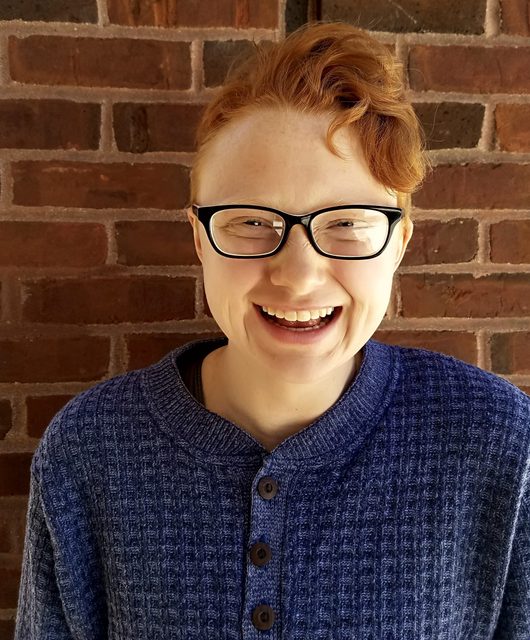
Gray Babbs ’18
- Paducah, KY
- Biology
- Fulbright Location: Bahrain
I have not been extended my formal grant offer yet, so I do not have details on where I will be living and working during my Fulbright.
One of the aspects of my Fulbright that I am most excited about is the chance to practice my Arabic. When I first started learning Arabic, my instructor told me that only the first ten years of learning Arabic were hard. Now, I am in my sixth year of study, so I hope that my time in Bahrain serves as fruitful time put into this endeavor. I have been privileged to have amazing instructors (thanks Zaki and Yaron!) and a great cohort during my time at Carleton. Since colloquial Arabic varies so much country to country, the idiosyncrasies of Bahraini Arabic will be all new to me. This is also my first experience utilizing my Arabic skills in a professional context rather than a personal or academic one. I am truly excited for the new linguistic challenges that the coming year holds.
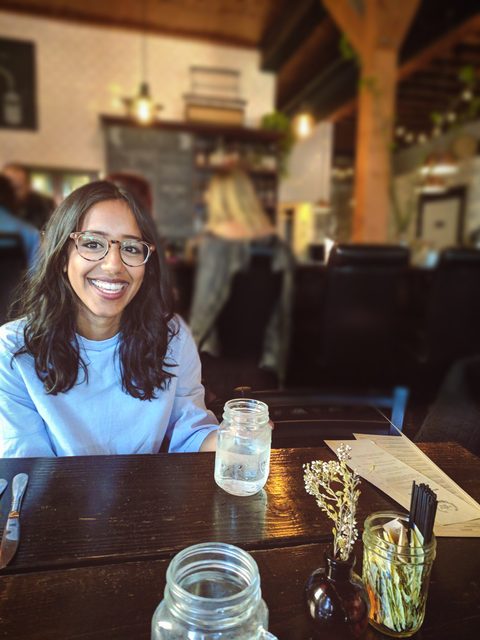
Preethiya Sekar ’18
- Rochester, MN
- Biology
- Fulbright Location: New Delhi, India
My Fulbright project builds upon previous efforts by NGOs and the Indian government to characterize barriers associated with screenings for breast cancer and other female malignancies. In developed regions, the 5-year survival rate for all breast cancer cases is around 80-90%. Conversely, the 5-year survival rate in India has remained approximately 60% since 1995. The divergence in survival outcomes between high income and low- or middle-income countries (LMICs) can be attributed, in part, to the delay in detection and diagnosis in LMICs. I will focus particularly on understanding the role of fear, fatalism, and social stigma that deter women from seeking appropriate breast cancer screenings. To this end, I will conduct in-depth interviews to investigate what prevents women from seeking early cancer screenings in villages surrounding New Delhi. This research may be applicable to other LMICs suffering from a growing burden of breast cancer, giving insight into effectively targeting marginalized populations and reducing breast cancer-related mortalities by advocating for early diagnosis.
Over the next year, I am excited to learn more about the inner workings of public health research and working with my NGO to further their mission of improving women’s health. I’ve never been outside the South Indian state of Tamil Nadu, so I’m looking forward to exploring different regions of India and hopefully traveling to other parts of the Indian subcontinent. I’m eager to see old friends and meet new ones, improve my Hindi, and eat lots of amazing food!
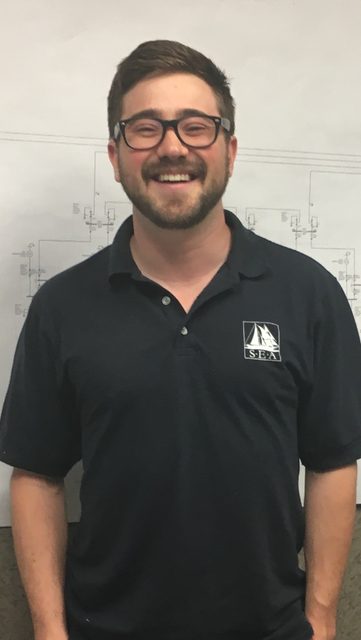
Marty Schwarz ’14
- South Orange, NJ
- Physics
- Fulbright Location: Bangalore, India
For a long time, my career goal has been to help make large-scale renewable energy feasible on country wide electrical grids. The Fulbright-Nehru fellowship fits my goal especially well, because of all global issues, climate change requires perhaps the most significant amount of international cooperation. At the Paris climate accord, Indian prime minister Narendra Modi committed to generating 40 percent of India’s energy from renewable sources by 2030. While smart economic policies are crucial to making this aggressive target a reality, the major technical hurdle is the inherent variability of wind and solar energy. In its current unstable state, India’s grid simply cannot handle a high level of fluctuation in energy supply. Therefore, Mr. Modi’s goal requires a re-engineering of electrical grid planning and operation in India. I will join a community of grid researchers at the Indian Institute of Science, Brookings India, and the Ashoka Trust for Research in Ecology and the Environment (ATREE) in Bangalore to shed some light on this task. One technique grid planners use to address the variability problem is to distribute wind and solar plants across wide geographic regions. This theoretically takes advantage of different weather patterns, resulting in an overall smoother energy output. However, this geographic smoothing effect has not been quantified or tested in India. I plan to use Fourier analysis to determine the power spectral density of different combinations of generation sources. This will aid grid planners in finding the best locations for future wind and solar installations, and help grid operators more efficiently utilize fossil fuel plants to fill in the gaps left by wind and solar. Another related issue with solar energy is that towards the end of the day as solar output drops off, the grid requires other sources to come online very quickly. This is known as “ramping”. Traditionally, these ramping services are provided by natural gas plants, which tend to be significantly more costly to run than coal fired plants. I will run stochastic statistical models of current and future energy supply, to analyze how much wind energy and pumped hydro storage can provide ramping services to India’s grid.
Besides the food, statues, jungles, Himalayas, temples, Holi parties, country motorcycle trips, hot weather, elephants and Bengal tigers, I am most excited to learn from the many electrical grid experts with whom I have connected. Brookings India has generously offered to host me as a Visiting Scholar. My mentor there, Dr. Rahul Tongia, started out studying electrical engineering, then founded India’s Smart Grid Task Force, and now informs the country’s public policy. Seeing real public policy guided by rigorous science and engineering will be inspiring, and it will help me figure out how I can eventually do the same in the United States. Another mentor, Dr. Shoibal Chakravarty of ATREE, has been developing an impressive computational model of India’s grid. Much of what grid operators do boils down to a computational problem, as they determine which energy resources should be dispatched at what times. As renewable energy technologies overtake fossil fuels as the dominant generating sources, this problem becomes much, much, more complicated. I can’t wait to dive head first into this issue, with the guidance of experts who know way more than I do! Of course, no level of renewable energy penetration is as exciting to me as a fresh bowl of palak paneer. Come visit!
